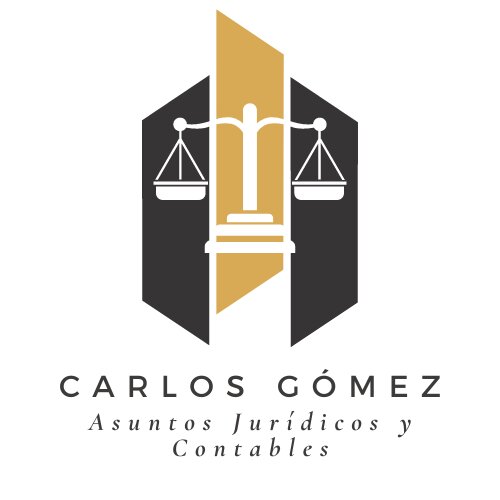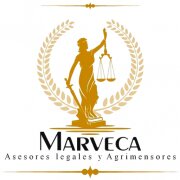Best Class Action Lawyers in Santo Domingo Este
Share your needs with us, get contacted by law firms.
Free. Takes 2 min.
List of the best lawyers in Santo Domingo Este, Dominican Republic
About Class Action Law in Santo Domingo Este, Dominican Republic
Class action lawsuits are a legal mechanism that allows a group of individuals who have suffered similar harm or have a common grievance to collectively bring a case against a defendant. In Santo Domingo Este, as in the wider Dominican Republic, class actions are an emerging area of law primarily aimed at addressing issues like consumer protection, environmental harm, and breaches of contract that affect a large number of people. Class action suits can be a powerful tool for holding corporations and institutions accountable and for achieving justice for numerous individuals in a more efficient manner than individual lawsuits.
Why You May Need a Lawyer
There are several common situations where you may need legal assistance for a class action lawsuit in Santo Domingo Este. These include:
- Consumer protection issues, such as defective products or misleading advertisements.
- Environmental damages affecting communities, including pollution and contamination.
- Employment disputes involving unfair labor practices or violations affecting multiple employees.
- Financial fraud or malpractice where numerous individuals have been misled or suffered losses.
- Health concerns related to widespread pharmaceutical or medical product issues.
Legal expertise is essential in these cases to navigate the complexities of the legal system, effectively organize the plaintiffs, and maximize the chances of a successful outcome.
Local Laws Overview
In Santo Domingo Este, class action lawsuits are governed by the broader legal framework of the Dominican Republic. Key aspects include:
- The requirements for filing a class action suit, including showing that a significant number of plaintiffs have been affected by the same issue.
- The necessity for a representative plaintiff to act on behalf of the group.
- Procedures for proving the commonality of the grievance among all members of the class.
- Limits on damages and potential compensation for plaintiffs.
- The role of the judiciary in approving settlements to ensure fairness and adequacy for all parties involved.
Frequently Asked Questions
What is a class action lawsuit?
A class action lawsuit is a legal action where one or several plaintiffs file a case on behalf of a larger group who share similar legal grievances.
Who can be part of a class action?
Any individual who has suffered similar harm or has a common grievance with the defendant can be part of a class action, typically requiring a lawyer to help organize the group.
How are settlements distributed in class action lawsuits?
Settlements are usually divided among the plaintiffs, with considerations for the extent of harm suffered by each person. A judge must approve the distribution to ensure fair compensation.
How long does a class action lawsuit take?
The duration varies widely, from months to several years, depending on the complexity of the case and cooperation from both parties.
Can I sue individually after joining a class action?
Once you join a class action, you typically waive the right to sue individually over the same issue. It is crucial to understand the implications before joining.
How do I know if I am part of a class action?
If eligible, you will be notified, often through mail or public announcements, providing details and options for participation or opting out.
What costs are associated with joining a class action?
Many class actions are taken on a contingency fee basis, meaning the lawyers receive a percentage of any awarded settlement or verdict, often with no upfront costs for plaintiffs.
Can foreign residents be part of a class action in Santo Domingo Este?
Yes, if they have been affected by the issue in question and meet the requirements established by the court, they can join the lawsuit.
How is a settlement in a class action lawsuit approved?
A judge reviews and approves settlements to ensure they are fair and adequate for all class members before it is finalized.
What happens if a class action lawsuit is unsuccessful?
If unsuccessful, class members may receive no compensation, and the lawsuit might set a precedent, affecting future legal actions on similar issues.
Additional Resources
For those seeking more information or assistance, several organizations and governmental bodies can be helpful, including:
- The Ministry of Justice in the Dominican Republic for legal frameworks and guidance.
- Consumer protection agencies for issues related to consumer rights.
- Local legal aid societies that may offer pro bono or low-cost legal advice.
- Environmental organizations for cases related to ecological harm.
- Labor unions and workers' rights groups for employment-related class actions.
Next Steps
If you believe you have grounds for a class action lawsuit or have been invited to join one, consider the following steps:
- Consult with a qualified attorney specializing in class action law to understand your rights and options.
- Gather and document any evidence related to your case, such as contracts, correspondence, and financial records.
- Attend information sessions or meetings organized by the representative plaintiff or their legal team.
- Review any documentation thoroughly before signing, especially concerning settlement offers or opting out.
- Stay informed about the progress of the case and any actions required on your part.
Obtaining competent legal guidance is critical to navigating the complexities of class action lawsuits successfully.
Lawzana helps you find the best lawyers and law firms in Santo Domingo Este through a curated and pre-screened list of qualified legal professionals. Our platform offers rankings and detailed profiles of attorneys and law firms, allowing you to compare based on practice areas, including Class Action, experience, and client feedback.
Each profile includes a description of the firm's areas of practice, client reviews, team members and partners, year of establishment, spoken languages, office locations, contact information, social media presence, and any published articles or resources. Most firms on our platform speak English and are experienced in both local and international legal matters.
Get a quote from top-rated law firms in Santo Domingo Este, Dominican Republic — quickly, securely, and without unnecessary hassle.
Disclaimer:
The information provided on this page is for general informational purposes only and does not constitute legal advice. While we strive to ensure the accuracy and relevance of the content, legal information may change over time, and interpretations of the law can vary. You should always consult with a qualified legal professional for advice specific to your situation.
We disclaim all liability for actions taken or not taken based on the content of this page. If you believe any information is incorrect or outdated, please contact us, and we will review and update it where appropriate.











